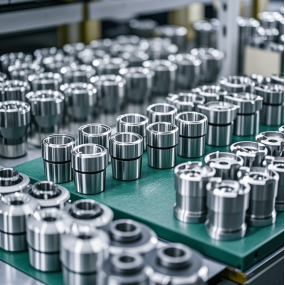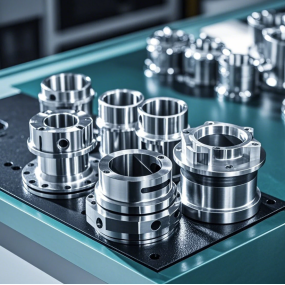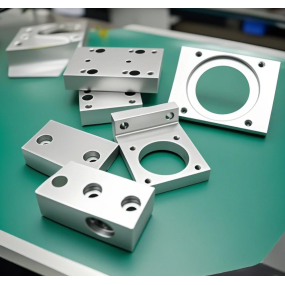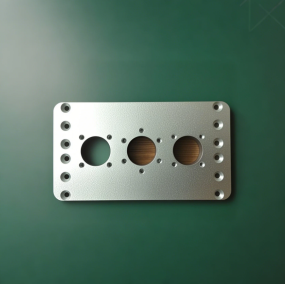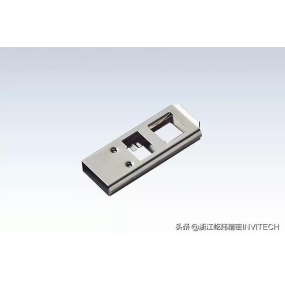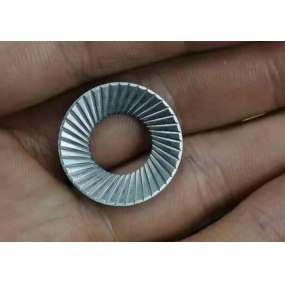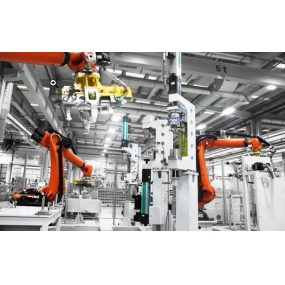Cold stamping is a leading metal processing method. It is based on the plastic deformation of metals and uses molds and stamping equipment to process sheet metal in order to obtain the required parts shape and scale. Compared with cold stamping and cutting processing, it has a series of advantages such as high productivity, low processing cost, high data utilization rate, stable commodity scale accuracy, simple operation, and simple mechanization and automation, making it particularly suitable for many productions.
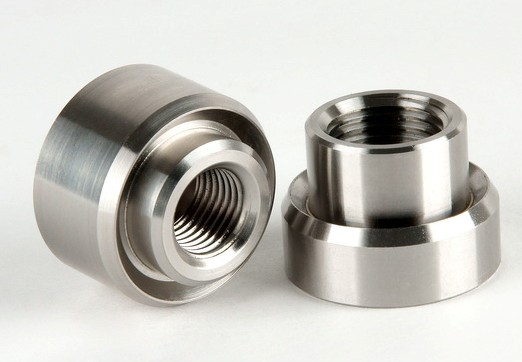 Compared with cold stamping and cutting processing, it has a series of advantages such as high productivity, low processing cost, high data utilization rate, stable commodity scale accuracy, simple operation, and simple completion of mechanization and automation, making it particularly suitable for many productions.
Compared with cold stamping and cutting processing, it has a series of advantages such as high productivity, low processing cost, high data utilization rate, stable commodity scale accuracy, simple operation, and simple completion of mechanization and automation, making it particularly suitable for many productions.
Because sheet metal parts are light in weight and have satisfactory strength and stiffness, they can be processed into parts of various shapes and sizes according to different uses. Therefore, cold stamping parts are widely used in modern cars, tractors, motors, electrical appliances, instruments, surfaces and various civilian light industrial commodities. In national defense, such as aircraft, missiles, bullets, artillery shells and other commodities, the share of parts produced and processed by cold stamping is also quite large. With the rapid development of cars and household appliances, many leading industrial countries have paid high attention to the development of cold stamping production. For example, the output of the mold industry in the United States, Japan and other countries has exceeded that of the machine tool industry. In 1982, the annual output of molds in the United States was 5.77 billion US dollars, and the machine tool was 5.50 billion US dollars. In 1982, the annual output of molds in Japan was 860 billion yen, while the machine tool only 784.20 billion yen. The share of cold die stamping in the mold industry is very large. The trend of cold stamping abroad can be seen in turn.


 Spanish
Spanish Arabic
Arabic French
French Portuguese
Portuguese Belarusian
Belarusian Japanese
Japanese Russian
Russian Malay
Malay Icelandic
Icelandic Bulgarian
Bulgarian Azerbaijani
Azerbaijani Estonian
Estonian Irish
Irish Polish
Polish Persian
Persian Boolean
Boolean Danish
Danish German
German Filipino
Filipino Finnish
Finnish Korean
Korean Dutch
Dutch Galician
Galician Catalan
Catalan Czech
Czech Croatian
Croatian Latin
Latin Latvian
Latvian Romanian
Romanian Maltese
Maltese Macedonian
Macedonian Norwegian
Norwegian Swedish
Swedish Serbian
Serbian Slovak
Slovak Slovenian
Slovenian Swahili
Swahili Thai
Thai Turkish
Turkish Welsh
Welsh Urdu
Urdu Ukrainian
Ukrainian Greek
Greek Hungarian
Hungarian Italian
Italian Yiddish
Yiddish Indonesian
Indonesian Vietnamese
Vietnamese Haitian Creole
Haitian Creole Spanish Basque
Spanish Basque

